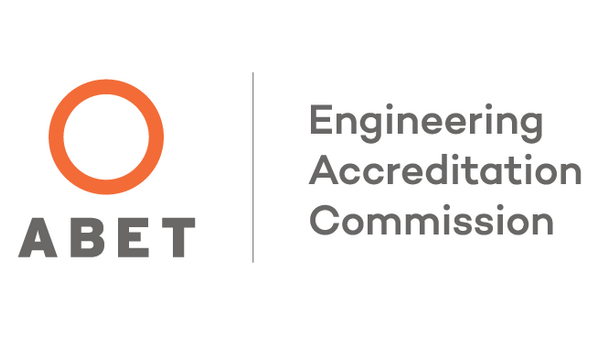ABET Accredited Program
The Bachelor of Science in Bioengineering program is accredited by the Engineering Accreditation Commission of ABET, under the commission’s General Criteria and Program Criteria for Bioengineering and Biomedical and similarly named Engineering Programs.
Bachelor of Science in Bioengineering Program Educational Objectives (PEOs)
Our graduates will:
- Become leaders in bioengineering/biomedical engineering and related fields
- Have the capability to pursue and excel in bioengineering-related graduate studies, careers in the medical device or biotechnology industries, or medical or other health-related professional schools.
- Be effective in working professionally as individuals and in teams and communicating effectively to integrate contributions from multiple disciplines to address biological and medical problems.
- Have an understanding of a broad range of ethical and social concerns related to bioengineering/biomedical engineering.
Consistency between the Bioengineering Program Educational Objectives and Bourns College of Engineering Mission Statements |
|
|
Department of Bioengineering Program Educational Objectives |
Bourns College of Engineering Mission Statements |
|
Become leaders in bioengineering/biomedical engineering and related fields. |
Produce engineers with the educational foundation and adaptive skills to serve rapidly evolving technology industries |
|
Have the capability to succeed in bioengineering-related graduate studies, careers in the medical device or biotechnology industries, and medical or other health-related professional schools. |
Conduct nationally recognized engineering research focused on providing a technical edge for the United States. |
|
Be effective in working professionally as individuals and in teams and communicating effectively to integrate contributions from multiple disciplines to address biological and medical problems. |
Contribute to knowledge of both fundamental and applied areas of engineering. |
|
Have an understanding of a broad range of ethical and social concerns related to bioengineering/biomedical engineering. |
Provide diverse curricula that will instill in our students the imagination, talents, creativity, teamwork, decision-making, and problem-solving abilities |
Bioengineering Program Constituencies
The key significant constituencies of the bioengineering program are the following:
- The faculty and staff responsible for delivering the program.
- The Bioengineering program External Advisory Board.
- Graduates of our program employed within bioengineering industries and related government positions.
- The students enrolled in the program.
ABET Program Criteria for the Bachelor of Science in Bioengineering Degree
- Curriculum: The curriculum must include mathematics through differential equations, a thorough grounding in chemistry and biology, and a working knowledge of advanced biological sciences consistent with the program's educational objectives. The curriculum must prepare graduates to apply engineering to biological systems.
- Faculty: The program shall demonstrate that those faculty members teaching courses primarily designed in the content are qualified to teach the subject matter by virtue of education and experience or professional licensure.
Bachelor of Science in Bioengineering Program Student Outcomes
The Department of Bioengineering has combined Student Outcomes as listed in ABET Criteria 3 with ABET Program Criteria for Bioengineering to form a modified list of Student Outcomes listed below.
- an ability to identify, formulate, and solve complex engineering problems by applying principles of engineering, science, and mathematics
- an ability to apply engineering design to produce solutions that meet specified needs with consideration of public health, safety, and welfare, as well as global, cultural, social, environmental, and economic factors
- an ability to communicate effectively with a range of audiences
- an ability to recognize ethical and professional responsibilities in engineering situations and make informed judgments, which must consider the impact of engineering solutions in global, economic, environmental, and societal contexts
- an ability to function effectively on a team whose members together provide leadership, create a collaborative and inclusive environment, establish goals, plan tasks, and meet objectives
- an ability to develop and conduct appropriate experimentation, analyze and interpret data, and use engineering judgment to draw conclusions
- an ability to acquire and apply new knowledge as needed, using appropriate learning strategies
Members of the Department of Bioengineering External Advisory Board
| Lara Abbaschian | Imperative Care |
| Gilda Barabino | Olin College of Engineering |
| Walt Baxter | Medtronic |
| Andrew Carmen | 10X Genetics |
| Song Li | UCLA |
| Roderic I. Pettigrew | Texas A&M |
| William R. Pratt | Kinamed |
| Ben Versteeg | TruTouch Technologies |
| Yongxing “John” Zhang | Independent Consultant |

